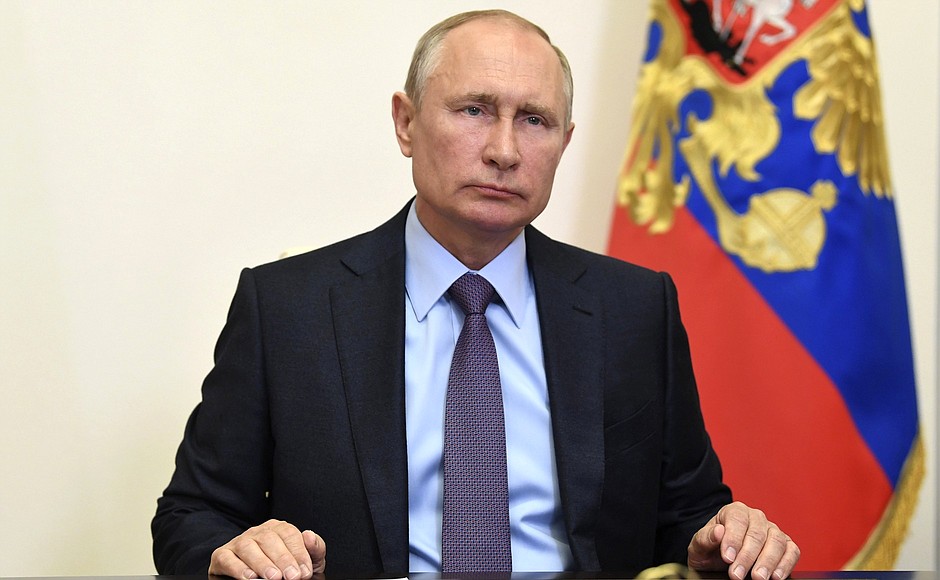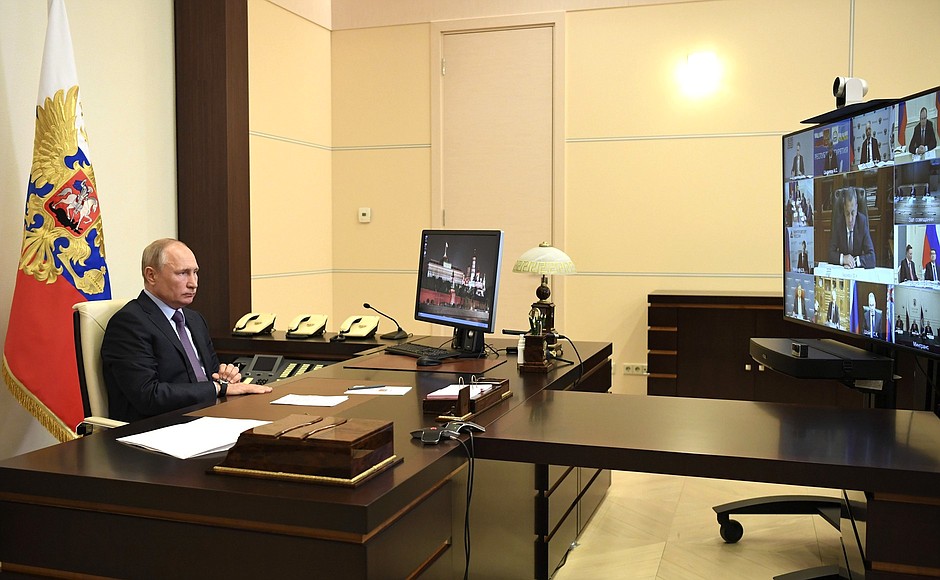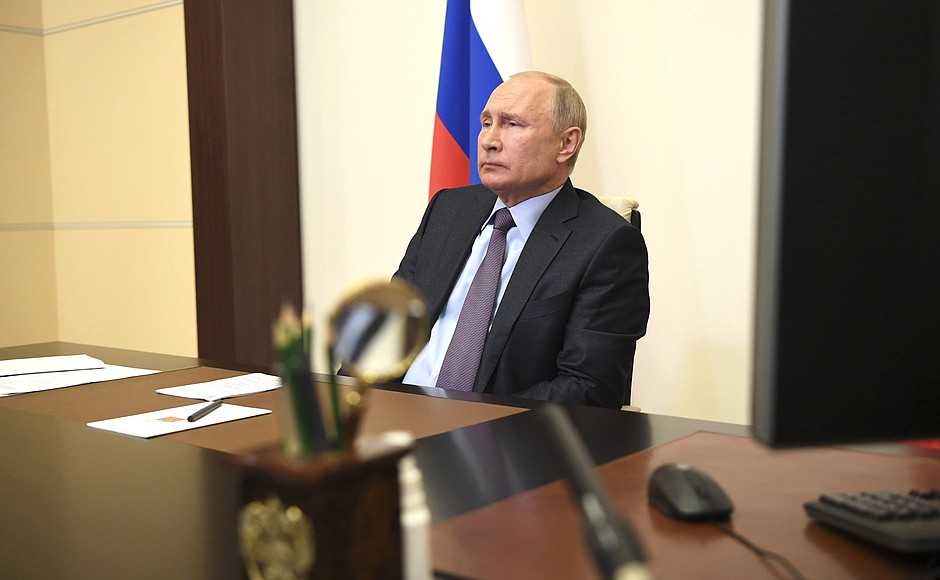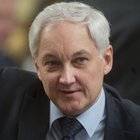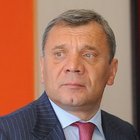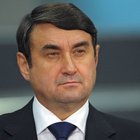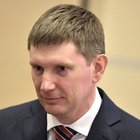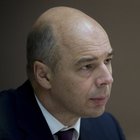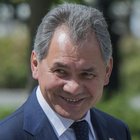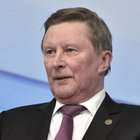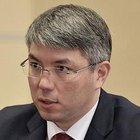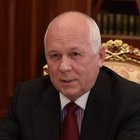Taking part in the videoconference were Chief of Staff of the Presidential Executive Office Anton Vaino, Acting Prime Minister Andrei Belousov, Deputy Prime Minister Yury Borisov, Presidential Aides Igor Levitin and Maxim Oreshkin, Transport Minister Yevgeny Ditrikh, Industry and Trade Minister Denis Manturov, Economic Development Minister Maxim Reshetnikov, Finance Minister Anton Siluanov, Defence Minister Sergei Shoigu, Special Presidential Representative for Environmental Protection, Ecology and Transport Sergei Ivanov, Head of the State Council working group on transport and Head of the Republic of Buryatia Alexei Tsydenov, First Deputy Minister of Transport and Head of the Federal Agency for Air Transport Alexander Neradko, Director General of Russian Post Maxim Akimov, Director General of the United Engine Corporation Alexander Artyukhov, Director General of State Corporation for the Promotion of the Development, Manufacture, and Export of High Tech Products Rostec Sergei Chemezov, Director General of United Aircraft Corporation Yury Slyusar, Chairman of the State Development Corporation VEB.RF Igor Shuvalov, as well as the heads of Russian Helicopters, Red Wings Airlines, Utair Aviation, State Transport Leasing Company, Aeroflot, Azimuth Airline, S7 Group, and the International Airports Association.
* * *
President of Russia Vladimir Putin: Good afternoon, colleagues.
Let us get down to work.
However, before we discuss measures to support our air carriers and the aviation industry, I would like to say the following. We hold regular meetings on the individual industries, but the crucial part is that all of our plans and projects are implemented on time and in full.
This is what I have in mind. On May 11, after a serious discussion with the Government and the Executive Office, I proposed a set of measures to support the people and businesses. On the next day, over a million requests had been posted on the Public Services Portal by those who hope to receive the one-time assistance of 10,000 rubles per child aged through 15 years. Then the portal crashed. I know that our colleagues from the Communications Ministry have now repaired it, but I would like you to take notice of this, as well as of other such similar matters.
Even during these difficult times – it is also difficult for the budget, because budget revenue has decreased considerably due to the falling prices of our traditional products, that is, oil and energy – we nevertheless found the means to support our people, the economy in general, as well as individual industries and companies. Once we started doing this, we must carry it through, for otherwise we will not achieve the result that we want and that the people expect us to achieve.
This also concerns, as I mentioned last time we met, additional payments to our medical personnel. As I said on May 11, regrettably, these payments have been made in far from all of the regions. As of now, only two or three regions have not made these payments. We only had to point at the drawback, and it was immediately remedied. Why cannot we do everything properly from the very start?
I am asking you to pay more attention to performance standards.
As I have already mentioned, we regularly hold industry meetings to support the economy and jobs, employment and the incomes of citizens. Today, as agreed, we will discuss the airline industry. Together with business representatives, we will consider the current state and development tasks of domestic airlines, airports, as well as aircraft manufacturing enterprises.
As I have already noted, due to the coronavirus epidemic, air traffic – both in our country and abroad – is facing forced restrictions. Perhaps the most serious decline among all types of transport occurred in aviation. The numbers of users on domestic flights decreased significantly, by 88 percent. International air traffic has almost stopped: there is a reduction of more than 90 percent. The number of passengers at Russian airports has dropped to a minimum.
Companies, airports are losing revenue, which certainly affects their financial situation and, most importantly, their employees and the well-being of people involved in air transportation.
Let me remind you that we have already decided to allocate emergency assistance – over 23 billion rubles – to Russian airlines so that they can pay salaries to crews, personnel, airport services, leasing expenses and other purposes and thereby ensure the stability of enterprises.
I would like to ask business representatives today to tell us how this work is being organised and whether all the issues have been resolved. Although I do know that not all the issues have been resolved, and in fact, the organisation of this work within the allocated funds requires more serious consideration. Let us talk about this today. Let us talk about how effective and sufficient the incoming support is.
I would also like to note that last week, following a meeting on transport, I gave instructions to especially support airports during the epidemic, to allocate federal funds – almost 11 billion rubles – for their urgent needs. I would like to ask the heads of the federal departments to report on how the decisions made are being implemented.
Let me emphasise that our common task is to provide for reliable, high quality and safe airline service in Russia. Meanwhile, it is important for the industry to see the prospects of its development and further growth. However, it is also important for the Government to understand these prospects. I think that any of our actions to support this or that sector should proceed from a clear long-term model of its operation. I am asking the Minister of Transport to tell us today which structural changes in the industry are expected in the years to come and what the Government is going to do in this respect.
We are talking not only about major aviation. I suggest talking about small, specialised, sanitary aviation operating in remote areas where it, in fact, has no alternative.
And, of course, in the current circumstances it is necessary to support the foundation of the industry, namely the aircraft-building enterprises, and give work to those complex and, in many ways, unique production facilities.
Russia is, by the way, among the few countries that can produce the entire range of military and civil planes and helicopters. It is a huge competitive edge and an embodiment of our industrial, economic, scientific and educational potential.
Russia-made aircraft can compete in many specifications on equal terms with their foreign counterparts and global market leaders and, by the way, speaking of combat aircraft, largely surpass them.
In addition, the capacity of the Russian aircraft industry makes it possible to work on new and promising models. Above all, I mean the MS-21 medium-range civil airliner that is being tested. I believe, it has already made over 300 flights, which is a third of the required number.
I have already said that it is a matter of principle to provide our aircraft plants with orders and raise the demand for Russia-made aircraft. It will encourage the creation of jobs, the upgrade of production facilities and the development of new aircraft models.
I believe that the right thing to do would be to take the following decisions in this regard:
First, we need to launch a support programme for the leasing and operation of Russian aircraft. To this end, I propose offering leasing companies state guarantees in 2020–2021, as well as subsidies in order to reduce the per-hour flying cost for Russian aircraft. According to our estimates, this programme will enable Russian plants to manufacture 59 new civilian aircraft in the first two years alone.
At the same time, we need to simplify and streamline these leasing subsidies for carriers and aircraft manufacturers, including by directly linking the purchase of a specific aircraft to receiving the subsidy. In other words, the money will follow the aircraft.
Second. We are paying a great deal of attention to developing regional air services by subsidising direct region-to-region flights bypassing the Moscow Aviation Hub. We are doing this primarily in the interests of the people, the passengers, since non-stop flights are much more convenient and of course cheaper.
Every year, the government earmarks about 8 billion rubles from the federal budget to this effect, and regions chip in as well. However, the demand for subsidies largely exceeds the allocated funds.
We need to consider the possibility of expanding this programme. In addition, we need to fine-tune this mechanism in order to prioritise destinations operating Russian aircraft.
I would also like to remind you about the decision adopted in December 2019 when I asked you to draft proposals on creating a dedicated airline operating a fleet of Russian-made passenger and cargo aircraft in Russia’s Far East, including hard-to-reach territories. I would like to hear a progress report on this instruction.
Third. The state will have to place more orders to support demand. This is a universal and effective approach that we use to support automobile manufacturers, other industrial sectors, as well as infrastructure construction. Of course, for the aviation industry this could be even more relevant than for any other sector.
We have planned to purchase aircraft as part of the national projects and state programmes. I propose fast-forwarding these transactions in order to give work to our manufacturers right now, when they are going through a challenging period. I am referring, among other things to the purchase of 66 helicopters as part of the programme to develop air medical services. I strongly believe that expediting these deliveries will be totally worth it.
State-owned companies must become involved as well. I know for example that Russian Post will have to modernise its cargo fleet in the near future. I would like to ask the company’s chief executive to report on its long-term plans for buying aircraft.
Actually, this applies to other companies that are fully or partially owned by the state. Overall, in this situation we have to be very rational and generous. We need to look at what aircraft our state-owned companies wanted to buy and in what quantities, including oil and gas companies and other businesses, sum up this data to understand the magnitude of these orders, and make the corresponding adjustments. It may be the case that we should also expedite defence procurement orders.
Let us get down to work. I would like to give the floor to Deputy Prime Minister Borisov.
Please, go ahead.
Deputy Prime Minister Yury Borisov: Mr President,
Aircraft manufacturing companies have been able to fulfil defence procurement orders, provide for the combat readiness of the Air Force, and carry out civilian aircraft manufacturing programmes, and all this thanks to your unwavering attention to this sector and the timely and expeditious government decisions.
At the same time, we need to recognise that the troubled loans that have been pilling up over the past years have a negative effect on this sector in general. United Aircraft Corporation alone has over 400 billion rubles worth of these debts and spends over 30 billion rubles in interest on arrears every year.
The government commission that was established under your Executive Order reviewed the long-term financial restructuring programme of United Aircraft Corporation. This programme provides for government support measures, including a capital increase and the restructuring of UAC’s troubled loans for a 15-year term; streamlining the corporate structure and governance within a three-year term and overhauling UAC’s R&D block within a five year term, which is expected to save about 300 billion rubles; and divesting the corporation’s non-core assets for an estimated 17 billion rubles.
The commission carried out a detailed review of UAC’s financial restructuring scenarios by comparing the key indicators, and analysed the aircraft line-up and the manufacturing programme for the entire programme period.
The financial restructuring programme will enable UAC to complete the investment stage of the ongoing aviation programmes and step up serial manufacturing of new aircraft, as well as create stable conditions for carrying out civilian and defence aviation programmes in the future. The restructuring programme provides for expanding UAC’s capacities for assembling MC-21, Il-114 and other aircraft.
In addition, we brought forward the timeframe for import substitution projects, including changing the deadline for completing the Sukhoi SuperJet import substitution project to 2023 instead of 2024.
The government commission adopted the financial restructuring programme on May 12, 2020, taking into consideration the adjustments to state support measures that the Industry and Trade Ministry and the Transport Ministry will report on today, as well as having agreed with the Defence Ministry on cancelling fines and penalties under defence procurement orders for the past few years.
In order to place the financial restructuring programme on more stable footing, I am asking you, Mr President, to instruct the Industry and Trade Ministry together with the Defence Ministry, the Finance Ministry, the Economic Development Ministry and Rostec state corporation to find ways to minimise the penalties for failure to perform or improper performance under state contracts over the past few years.
It goes without saying that the corporation’s executives will be personally liable for fulfilling the programme’s main parameters, as we have agreed.
The financial restructuring programme that has been adopted, along with the additional measures to support the aviation sector and ensure air transportation that the participants in this meeting will present, will lay the groundwork for putting the aviation sector on sustainable footing.
Thank you.
Vladimir Putin: Thank you, Mr Borisov.
<…>
